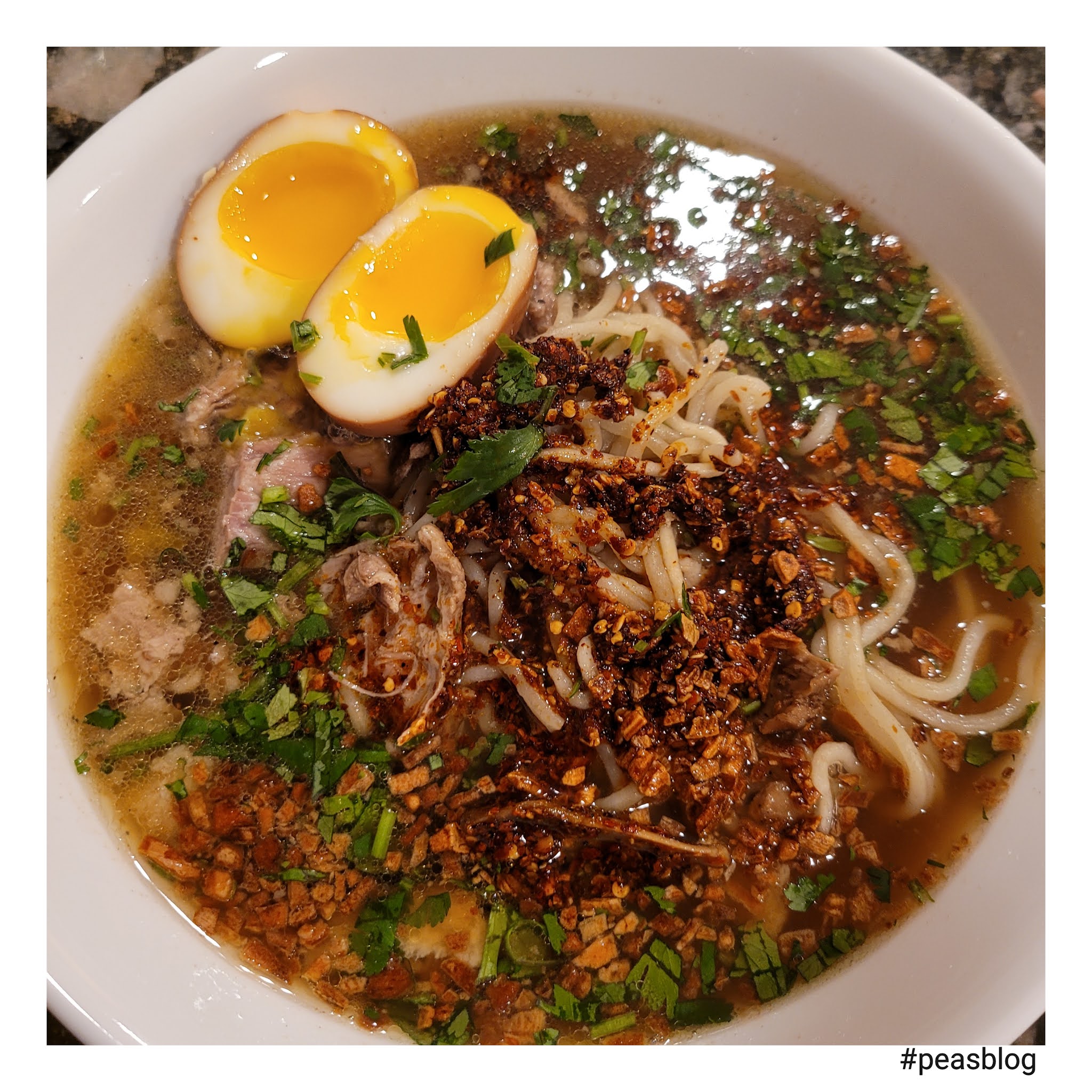Ramen noodles, a staple in many households, have gained immense popularity for their convenience and flavor. However, recent reports of "ramen noodle infection" have raised eyebrows and concerns among food enthusiasts and health experts alike. The term refers to a rare but serious condition that can arise from improper handling or consumption of ramen noodles. As this phenomenon becomes more widely recognized, it is essential to delve deeper into its causes, symptoms, and preventive measures.
The fascination with ramen isn't just about its taste; it also touches on cultural significance and culinary innovation. Originating from China and popularized in Japan, ramen has evolved into a global sensation, inspiring countless variations and recipes. Yet, the dark side of this beloved dish has surfaced, presenting a potential health risk that can catch the unwary by surprise. Understanding the underlying factors contributing to ramen noodle infections is crucial for anyone who enjoys this dish.
As we explore the world of ramen noodles, we must consider how a seemingly harmless meal can become a vector for infection. With the rise of instant ramen noodles and the convenience they offer, many people overlook the importance of food safety practices. This article aims to shed light on the ramen noodle infection, its implications, and how to enjoy ramen safely while avoiding potential health hazards.
What Causes Ramen Noodle Infections?
Ramen noodle infections are primarily caused by bacterial contamination. Common culprits include:
- Improper cooking temperatures
- Cross-contamination with raw foods
- Inadequate storage practices
Understanding these factors can help individuals take preventive measures when preparing and consuming ramen noodles.
How Can Bacteria Contaminate Ramen Noodles?
Bacteria can contaminate ramen noodles in various ways, including:
- Using unclean utensils or surfaces
- Handling raw meat or seafood without proper hygiene
- Allowing cooked noodles to sit at room temperature for too long
It is essential to maintain proper food safety protocols to minimize the risk of infection.
What Are the Symptoms of Ramen Noodle Infection?
Individuals who contract a ramen noodle infection may experience a range of symptoms, including:
- Nausea
- Vomiting
- Diarrhea
- Abdominal cramps
- Fever
These symptoms can vary in severity, with some individuals experiencing mild discomfort while others may require medical attention.
How to Prevent Ramen Noodle Infections?
To enjoy ramen safely, consider the following preventive measures:
- Cook noodles thoroughly and at the correct temperature.
- Avoid cross-contamination by using separate utensils for raw and cooked foods.
- Store leftover ramen in the refrigerator and consume it within a few days.
By following these guidelines, you can significantly reduce the risk of contracting a ramen noodle infection.
Are Some Types of Ramen Noodles Safer Than Others?
When it comes to safety, not all ramen noodles are created equal. Instant ramen noodles, for instance, often come with preservatives that may contribute to food safety. However, fresh or homemade ramen can also pose risks if not prepared correctly. Always prioritize quality ingredients and proper cooking methods, regardless of the type of ramen you choose.
What Should You Do If You Suspect a Ramen Noodle Infection?
If you suspect that you or someone else may have contracted a ramen noodle infection, it is important to take the following steps:
- Stay hydrated to prevent dehydration.
- Monitor symptoms and seek medical attention if they worsen.
- Report any foodborne illness to local health authorities.
Taking these steps can help ensure that any potential infections are addressed promptly and effectively.
What Is the Future of Ramen and Food Safety?
The ramen noodle infection highlights the need for increased awareness of food safety practices in the culinary world. As ramen continues to evolve and gain popularity, both consumers and producers must prioritize safe preparation methods. This includes educating the public about potential risks and ensuring that food establishments adhere to strict hygiene standards.
Can You Enjoy Ramen Without Fear of Infection?
Absolutely! Ramen can still be enjoyed safely by adhering to proper food safety practices. Following guidelines for preparation, cooking, and storage will allow you to indulge in this delicious dish without the fear of infection. So go ahead, savor your bowl of ramen, and share it with friends and family, knowing you’ve taken the necessary steps to ensure a safe dining experience.
Final Thoughts on Ramen Noodle Infection
The ramen noodle infection serves as a reminder of the importance of food safety in our kitchens. Understanding the causes, symptoms, and prevention methods can help us enjoy this beloved dish without fear. By being mindful of how we prepare and consume ramen, we can continue to relish its flavors and cultural significance while keeping our health intact.
Are All Ramen Noodles Recalled? The Truth Behind The Headlines
Ramen Noodle Recall In Canada: What You Need To Know
Delicious Discoveries: The Story Of Recall Ramen


